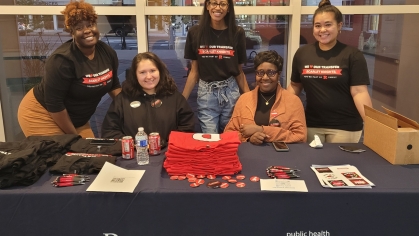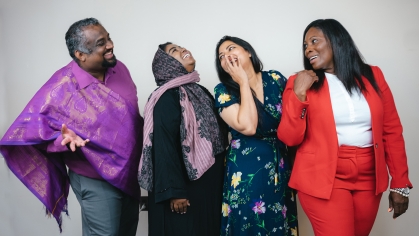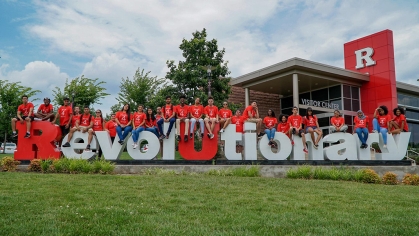Black History Month honored through the Paul Robeson Cultural Center and other departments at Rutgers University
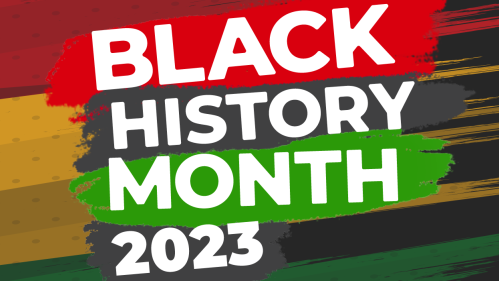
This February, as students, staff, and faculty across Rutgers University—New Brunswick honor and celebrate Black History Month, the Paul Robeson Cultural Center (PRCC), in the Division of Student Affairs, continues to take a leading role in supporting Black life at Rutgers.
Working with campus partners, the PRCC has compiled a list of events that reflect the richness of the African diaspora and the historical contributions of its trailblazers for their annual Black History Month calendar. Programs include performances, art exhibits, academic department programming, and student-led programming that highlights student leadership on campus.
“For this month, we have helped gather and elevate what was already happening on campus,” said Jakora Thompson, director of the PRCC. “The central location of the calendar has helped to showcase the programs running during Black History Month.”
This year was marked by the return of the Black History Month Opening Ceremony, led by the Black Student Union,which kicked off Black History Month on campus and raised awareness in the student community. This year, the event honored Black public figures who have been activists and changemakers in honor of the national Black History Month theme.
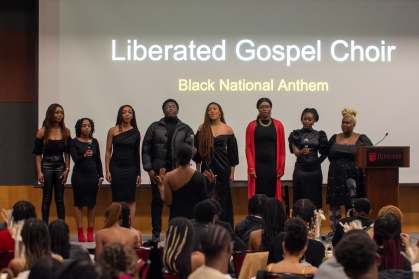
“This year’s national Black History month theme is Black Resistance. Black History Month allows us to reflect on the annual theme and allows us to center Black Resistance in a way that reminds us to have radical hope when current events can render us feeling helpless,” Thompson added. “Black History Month is culture, it’s heritage, it’s joy, and it let us know that it’s not only important to inform and to educate, but also to celebrate.”
The events on the calendar range in topic, subject, and audience. For example, "From Africa to its Diaspora," co-hosted by the African-American Alumni Alliance, the Zimmerli Art Museum, the Center for Latino Arts & Culture, and the New Brunswick Cultural Center, featured a gallery tour by renowned artists Alonzo Adams through the Gallery of the Americas, as well as African drum rhythms and dance from West Africa that made their ways into the Caribbean, Latin America, and the U.S.
On the other hand, the Free Hot Breakfast Thursdays at the PRCC pay homage to the Black Panther Party (BPP), which started a community-based free breakfast program for Black children in 1969, feeding thousands nationwide. The BPP’s program was the catalyst for the free lunch program in public schools launched by the federal government, and the PRCC’s own attempts to meet the needs of college students who often skip breakfast to stretch their meal plan options.
Additionally, to promote body positivity, the Center is partnering with the Center for Social Justice and LGBT Communities for “An Evening with Leah Vernon,” a plus-size model and body-positivity influencer and author of Unashamed: Musings of a Fat, Black Muslim.
“It’s necessary to have a breadth of programs,” said Thompson. “Everyone approaches Black History Month from a different perspective, which is important because honoring Black culture and Black people goes far beyond acknowledging racism and oppressive structures.
“That's why it's important to have department programs, student organization programs, community building programs, all honoring Blackness in its entirety and celebrating the joys, the strengths, and the capacities that encompass our culture.”
The PRCC is located on Busch campus, next to Busch Student Center, where it has been since 1992. It advises over twenty student organizations, hosts a Living-Learning Community, and provides essential programming for an undergraduate population of historically underrepresented groups, especially those in the African diaspora. You can access their website here.

